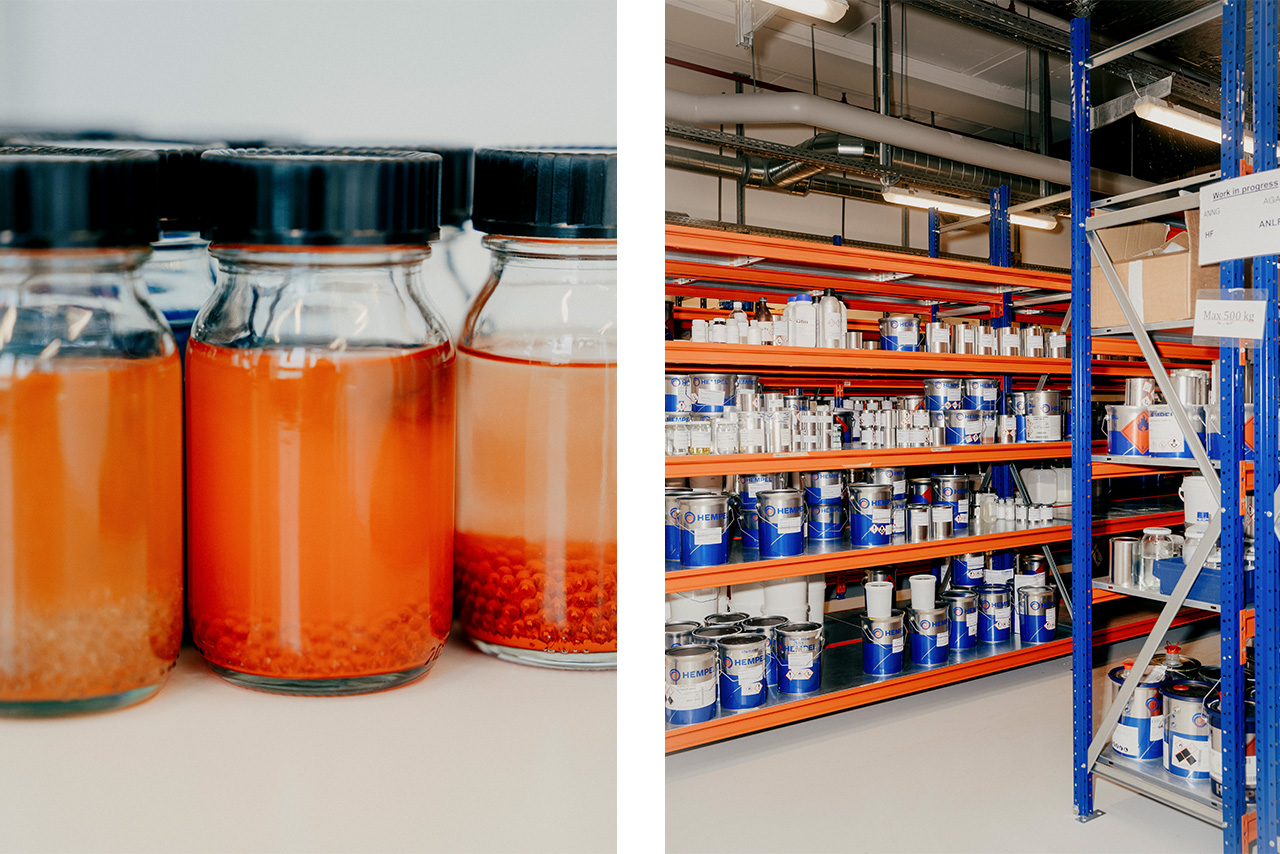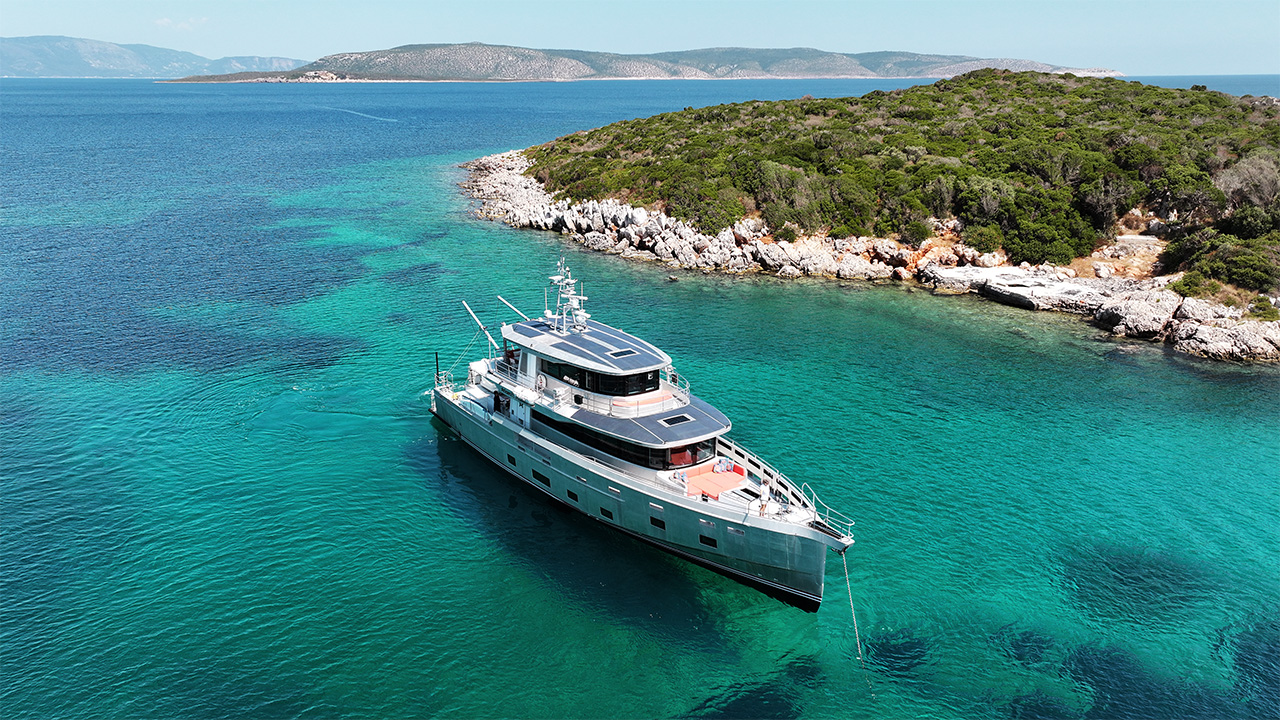A brush with Danish paint giant Hempel, the graphic novel adaptation of Raymond Chandler’s ‘Trouble is my Business’ and could Trump’s federal takeover actually work?
|
Thursday 14/8/25
|

|
|
London
Paris
Zürich
Milan
Bangkok
Tokyo
Toronto
|
|
|
|

Good morning from Midori House. For more news and views, tune in to Monocle Radio or visit monocle.com. Here’s what’s coming up in today’s Monocle Minute:
THE OPINION: Why the tourism trade is giving high summer the cold shoulder
SOCIETY: Could Trump’s federal takeover actually work?
DAILY TREAT: Graphic novel adaptation of Raymond Chandler’s ‘Trouble is my Business’
FROM MONOCLE.COM: A brush with Danish paint giant Hempel
|
|
Med resorts need to rethink as high summer starts to look over its shoulder
By Hannah Lucinda Smith
|

|
In the tourism trade it’s known as “shoulder season” – the late spring and early autumn weeks that buttress the busiest months of high summer. Traditionally, this was when holidaymakers seeking sun at a snip or looking to avoid the school break would take their getaway, albeit with the trade-off of chillier evenings. But rising summer temperatures in the traditional vacation playgrounds of the Mediterranean are now adding an extra incentive. This year’s May-June bookings were up 13 per cent on 2024 and September-October bookings are up by 20 per cent.
This month the Med feels just as crowded as any of the high summers of recent memory but there is a growing recognition that business models need to change. Southern Europe’s “sun, sea and sand” promise is less of a sell when temperatures are reaching deadly heights and the mercury in northern Europe regularly soars into the thirties. Last year several tourists, including television doctor Michael Mosley, died of heatstroke in Greece and drawcards such as the Parthenon in Athens have had to be repeatedly closed due to the extreme heat. Research by the International Labour Organisation found that there has been a 42 per cent increase in heat-related workplace deaths since 2000. Trade unions are pushing the European Commission to legislate on maximum-working temperatures – something that, if passed, would likely affect beach clubs and other outdoor attractions. Another problem is forest fires, which are now blighting large parts of the Med each year and led to mass evacuations from resorts in Crete last month.

Paradise lost: A 2021 wildfire burns by a resort in Marmaris, Turkey
“Climate change is a profound issue that will shape the future of tourism in Europe,” says Sedat Kirt, the deputy mayor of Marmaris, one of the most popular resorts in Turkey. Places with tourism-dependent economies need to rethink their strategies accordingly. The municipal authorities in Marmaris have started planning for out-of-season attractions, including a New Year festival that will run throughout the month of December and a local twist on Oktoberfest. The Turkish tourism ministry has also begun to open some of the country’s most famous archaeological sites to the public at night.
But other less southerly locales will reap benefits from the rising temperatures. Demand will shift to mountain resorts as tourists search for cooler climes and there is an opportunity for coastal towns in northern Europe to market themselves as summer alternatives, too. More tourists are seeking out eco-holidays that, lo and beyond, Scandinavian countries are excelling at through cycling and hiking getaways that showcase their dramatic landscapes. In the Canary Islands, the industry is getting elemental with off-season trips that promote stargazing and volcano tours. Summer breaks in stifling, overcrowded cities are on their way out, while inland water tourism centred around canals, rivers and lakes – something the UK could well excel in – is booming.
From Greek islands to Italian and Turkish coastal resorts, the industry is recalibrating. Year-round visitors would be a boon for locals who are often reliant on seasonal business. Conversations are turning to how communities can take advantage of clement winters, when the weather is perfect for exploring ancient cities and forest paths. In the south of Europe, mountain biking, camping and trekking are all best enjoyed between November and March, so municipalities need to work harder to run more than beachside cocktail-led campaigns. In late autumn it’s harvest season, a time when Mediterranean resorts should be capitalising on the region’s gastronomic prowess. And while the Med’s waters are frigid in winter, swimming is bearable for those brave, hardy northern European holidaymakers who could do worse than Christmas in Catania.
Hannah Lucinda Smith is Monocle’s Istanbul correspondent. For more opinion, analysis and insight, subscribe to Monocle today.
|
|
SOCIETY: USA
National Guard deployment in Washington is overtly political. It’s also necessary
Just hours after Donald Trump announced the federal takeover of Washington’s police force on Monday, The Washington Post reported the city’s 100th homicide of the year (writes Christopher Cermak).

March on Washington: Members of the National Guard on patrol
At the risk of shocking you, Trump has a tendency toward hyperbole. Washington is not “out of control” and nor is it among “the worst places on earth”. In fact, crime in the capital is not currently on the rise. Though to suggest that criminality is no longer a problem is equally disingenuous. Yes, violent crime is down from a peak in 2023 – but 100 murders in a city of just 700,000 people is a rate higher than any year in the decade preceding the pandemic. That and a spate of carjackings and open brawls even forced the city to impose a curfew on teens last month. It’s a rate of crime that needs to be curtailed – and fast.
As the National Guard mobilised on Washington streets Tuesday night, the optics surrounding Trump’s move on the capital were transparently political: a tough-on-crime Republican president taking control of the streets from a weak Democratic city mayor. But Washington could use the extra resources. So far, that seems to be the approach taken by officials on the ground, where a division of labour appears to be working itself out. Regardless of Trump’s motives, everyone involved in putting this into action lives in the Washington metropolitan area and wants to create a safer city. It might just work out.
|
|
• • • • • daily treat • • • • •
Graphic-novel adaptation of ‘Trouble is my Business’ by Raymond Chandler
It’s all too easy to nod off to a good book on a scorching shoreline or a gently rocking boat. That’s where the killer thriller comes in – a dose of intrigue and murder to keep you alert on your lounger. It’s why so many holidaymakers have tracked the movements of George Smiley through the pages of John le Carré novels or revelled in Patricia Highsmith’s exquisitely rendered antiheroes.
If you want a twist on the genre, pick up the new graphic novel adaptation of Raymond Chandler’s classic noir Trouble Is My Business, illustrated by Greek comic artist Ilias Kyriazis. This gripping crime thriller follows a detective who gets caught up in a seemingly straightforward mission to uncover the perpetrator of stolen jewels in 1940s LA. Full of wit and pacy storytelling, it will keep your pages turning under the summer sun.
knopfdoubleday.com
|
|
How Hempel created a paint empire through shipping, skyscrapers and Farrow & Ball
Farrow & Ball is known for its outré colour names, including “Elephant’s Breath”, “Arsenic” and “Dead Salmon” but the company that owns the UK paint maker has more than the luxury interiors market covered. Hempel is a 109-year-old Danish company that owns various brands, including Crown Paints, while also manufacturing cutting-edge coatings such as those that adorn London’s Tower Bridge, the Louvre Abu Dhabi and Amsterdam’s Schiphol airport. Elsewhere, its innovations can be glimpsed on the exteriors of oil rigs, gas platforms, wind-turbine blades and ship’s hulls. Hempel’s products are rigorously formulated to reduce drag and pollution, and used for far more than their dazzling hues.

Primed and ready: Hempel HQ
Watching paint dry has never been this fascinating or this lucrative: in 2023, Hempel’s revenue increased by a record 13.7 per cent to €2.4bn. “Our marine business has seen huge growth in the past three years,” says Michael Hansen, Hempel group president and CEO, when Monocle meets him at the company’s headquarters in Lundtofte, just north of Copenhagen. Hansen is particularly proud of Hempel’s newer marine coatings: one protects hull interiors against brutal cargos while also being easy to clean, enabling a quick turnaround in ports. Another super-slippery, self-polishing, silicone-based external paint can reduce drag and, therefore, fuel usage by more than 17.7 per cent. There’s even a special emulsion to smooth over vertical welds on a ship’s outer hull.
Fancy a tour of Hempel’s HQ? Click here for the full story.
|
|
Monocle Radio: the entrepreneurs
Arksen’s Jasper Smith on building a business for extraordinary adventure
We meet the founder of outdoor-adventure emporium Arksen to hear how the lifelong thrill-seeker built a business to share his love of exploration and bring a new approach to the industry.

|
|
Newsletter:
Join us
Welcome to our world
Has this been forwarded to you
by a friend? Sign up to The
Monocle Minute and Monocle
Weekend Editions to receive your
own bulletin of weekday news and
weekend treats.
| | |